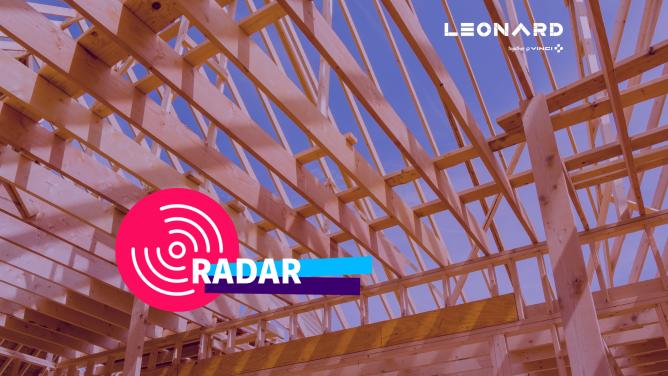Los Angeles is testing plastic asphalt to make the roads last longer
American manufacturer Technisoil will use a new process to repave a street in downtown L.A. The company will cover it with a material made of recycled plastic bottles mixed with asphalt, using the plastic to make the pavement even stronger that it was before. Technisoil’s machine grinds the top few inches of a street, crushes the asphalt to a specific size, and then mixes it with liquid plastic. The road is covered by the new mixture in real time.
This technique is a less expensive alternative when compared to bitumen or traditional asphalt. Because plastic-suffused asphalt reduces the amount of petroleum in asphalt, these roads require less time to assemble, making them a more financially feasible choice. These roads can last eight to 13 times longer than a standard road, and they become recyclable with a process that reduces 90% of emissions.
Elevators companies begin testing an Elevator-as-a-Service model
Schindlers’ elevators of the 53-floor structure of The Hudson Yards in New York are now fully equipped with sensors. Sensors can identify any deviations of what would be considered a normal ride, from a temperature change to a slow-closing door. When such anomalies are detected, the system sends alerts to hand-held devices carried by maintenance personnel.
With a combination of sensors and software, elevators companies are now shifting to a subscription-based model with platforms that can predict and diagnose elevators problems. Servicing and maintenance are attractive to elevator makers because of profit margins of up to 25% (vs ~5/10% for equipments) and drew half of the $104 billion total elevator revenue in 2018. New startups are also attacking these fields : Wemaintain for the maintenance and Uptime to predict problems.
Ces nouveaux modèles s’intègrent parfaitement a posteriori de la construction des infrastructures, et ne demandent donc pas d’adaptation infrastructurelle en amont.
GreyParrot is raising $1,2 million to improve waste management with computer vision
The london based start-up Greyparrot just raised $1.2 million for its robot that recognizes different types of waste. Its model trained with machine learning algorithms can differentiate glass, paper, cardboard, and different types of plastic such as PET or HDPE before a robotic arm sort out the waste in the right category.
This technology could accelerate and improve waste management which is still mainly operated manually. The $200 billion waste management industry seems broken: only 40 % of waste is recycled in France and the building trade produces alone 40 millions tons of waste per year, more than all households.
This technology could also be embedded in smart bins (Shanghai is currently testing it) or in reverse vending machines to improve waste sorting at the start.
D’autre part, cette technologie commence à être intégrée à des smart poubelles (déjà testées à Shanghai) et à des machines de consigne de plastique pour optimiser le tri à la source.
How Barcelona bets on stickers to make the city more accessible to visually impaired people
The public transport service of Barcelona (TMB) is deploying a new QR code technology called NaviLens across the city’s transport network to help visually impaired citizens navigate. Using a free app, visually impaired people get alerts when a QR code is available around them. The 5-inch-wide code card can be read by a phone from 12 meters away in 1/30 second. Informations are communicated in the user’s language : localization, timetable, obstacles around…
The system is being expanded to all 159 Metro stations and 2,400 bus stops. Other apps like Be My Eyes, Blindsquare ot DigitEyes are offering similar solutions. But they rely on GPS and Bluethooth beacons have to be installed indoors whereas NaviLens only needs Internet access.
AI-based construction platforms are taking off, receiving millions in funding
Alice Technologies and Disperse, two artificial intelligence-powered companies offering digital solutions for construction managers, announced new rounds of funding of $8m and $15m respectively.
Alice uses AI to let users explore building plans in real-time and understand the impact of construction decisions on project cost and duration. The company is already working with some of the biggest US construction managers like DPR construction. Overall, its clients claim to have saved 15% in labor costs and reduced project duration by 16%.
Disperse can create an accurate interactive digital twin of a construction site, showing overall progression and flagging potential issues. The technology has been deployed across more than 14 million square feet of construction in the U.K. and the U.S. The software claims to have helped construction managers to reduce time spent on site walks and reporting by 25 % and up to 60 % for senior schedulers.
Overall, the market of AI in construction industry could reach a total of $4.5 billion by 2026, helping to improve efficiency, safety and reduce costs and delay.


